-
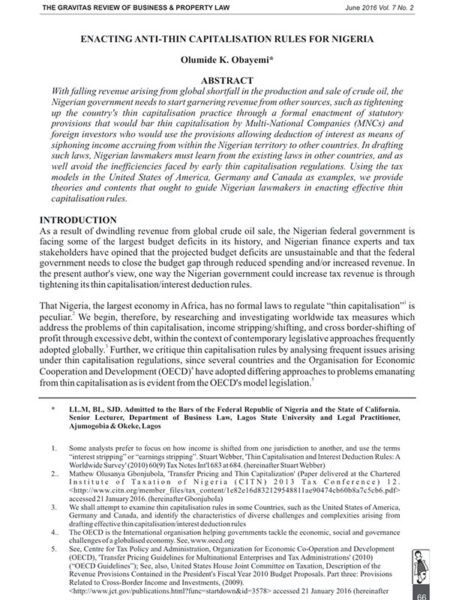
Enacting Anti-thin Capitalisation Rules for Nigeria
0₦2,500.00Dr Olumide Obayemi, Legal Practitioner, Ajumogobia & Okeke and Senior Lecturer, Department of Business Law, Lagos State University Ojo, examines an important topic that straddles corporate law, corporate finance and taxation. In his article, “Enacting Anti-Thin Capitalisation Rules for Nigeria”, he examines a financing strategy mostly favoured by multinational corporations (MNCs) in making investments outside their home nations. As debt is often a more tax efficient method of finance than equity because interest is tax deductible while dividend is not, most jurisdictions have prescribed rules to deal with the debt/equity mix by placing a ceiling on debt/equity ratio so that their tax base is not eroded as foreign firms finance their subsidiaries with excessive debt. Dr Obayemi explores anti-thin capitalisation rules in several jurisdictions and advocates the enactment of effective anti-thin capitalisation rules in Nigeria with a safe harbour of 1.5 to 1 debt-to-equity as the starting point.
-
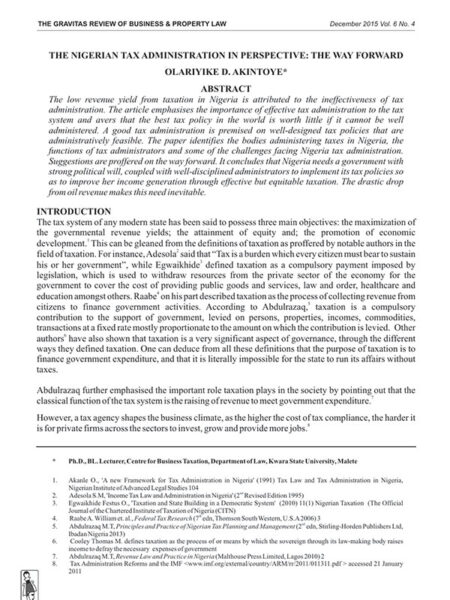
The Nigerian Tax Administration in Perspective: The Way Forward
0₦2,500.00Dr. Olariyike Akintoye of the Centre for Business Taxation, Kwara State University, Malete in “The Nigerian Tax Administration in Perspective: The Way Forward”, examines the legal framework for tax administration in Nigeria analysing the challenges and proffering ways to improve governments’ income generation through effective but equitable taxation.
-
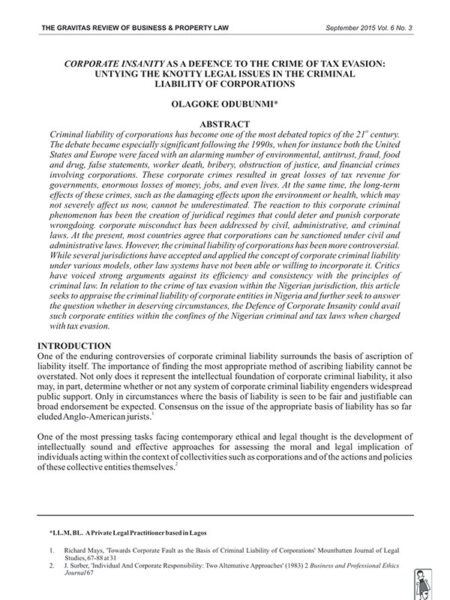
Corporate Insanity as a Defence to the Crime of Tax Evasion: Untying the Knotty Legal Issues in the Criminal Liability of Corporations
0₦2,500.00Odubunmi Olagoke in his article “Corporate Insanity as a Defence to the Crime of Tax Evasion: Untying the Knotty Legal Issues in the Criminal Liability of Corporations” explores the various theories of criminal liability and consider, from a distillation of the principles, the defence of Corporate Insanity to a crime of tax evasion.
-
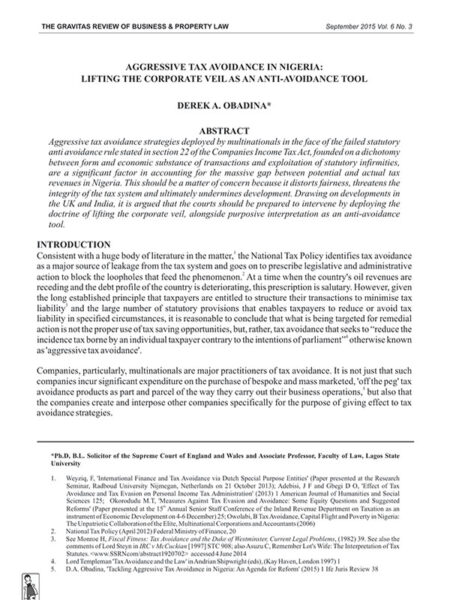
Aggressive Tax Avoidance in Nigeria: Lifting the Corporate Veil as an Anti-Avoidance Tool
0₦2,500.00Derek Obadina, Associate Professor of Taxation, Lagos State University, in his article “Aggressive Tax Avoidance in Nigeria: Lifting the Corporate Veil as an Anti-Avoidance Tool” examines tax avoidance and the deployment of corporate veil lifting as an anti-avoidance tool.
-
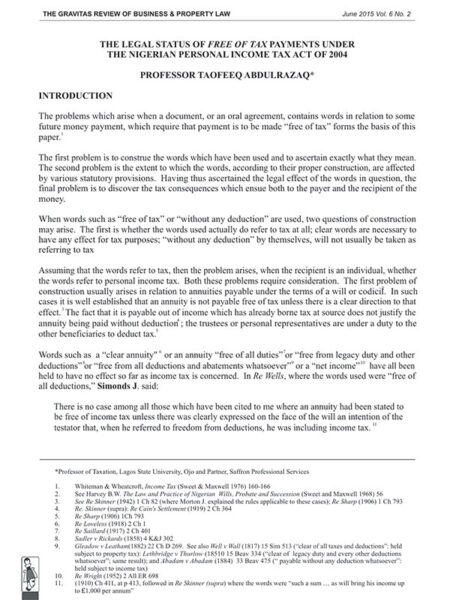
The Legal Status of Free of Tax Payments under the Nigerian Personal Income Tax Act of 2004
0₦2,500.00Dr. Taofeeq Abdulrazaq, FIRS Professor of Taxation, Lagos State University and Partner Saffron Professional Services, examines the legal status of the expressions “free of tax”, “free of all deductions” etc in “The Legal Status of Free of Tax Payments under the Nigerian Personal Income Tax Act of 2004”.
-
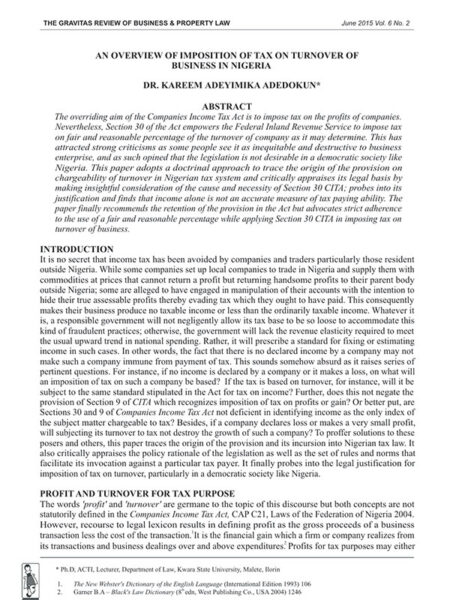
An Overview of Imposition of Tax on Turnover of Business in Nigeria
0₦2,500.00In “An Overview of Imposition of Tax on Turnover of Business in Nigeria” Dr. Kareem Adedokun of the Kwara State University argues that subjecting the Turnover of Business, rather than its profit, to tax is a necessary anti-avoidance rule and compatible with the status of Nigeria as a democratic country.
The Gravitas Review of Business & Property Law



